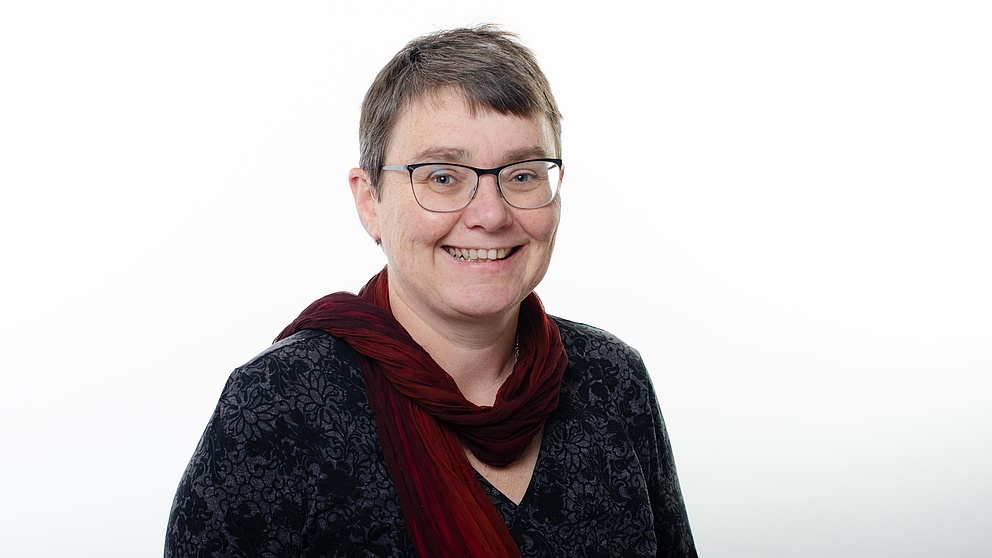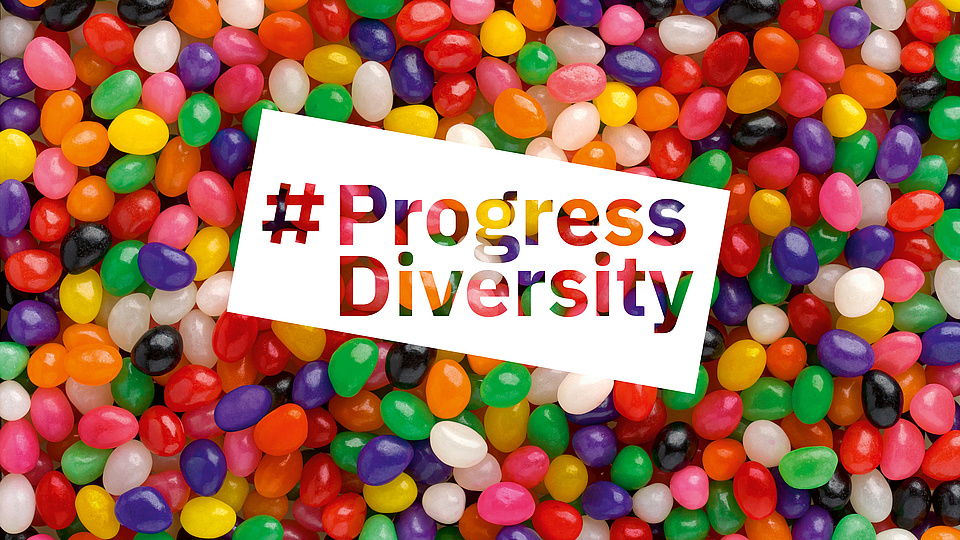
Dr Andrea Löther
is the deputy head of the Center of Excellence Women and Science (CEWS) at the GESIS Leibniz Institute for Social Sciences where she headed the study Access, Barriers and Potential: Study on the International Mobility of Female Scholars and Scientists. The focus of her work is gender equality policies at universities, gender monitoring and evaluation.

Ms. Löther, what was the biggest surprise for you when you conducted the study Access, Barriers and Potential for the International Mobility of Female Scholars and Scientists?
Andrea Löther: There were quite a few! One of the biggest surprises for me was just how important the subject of academic hosts in Germany is when it comes to recruiting a greater number of highly qualified internationally mobile women for research stays.
Could you explain?
There is an inclination for men to collaborate more with men and women with women. This is also the case in the Humboldt Foundation’s network. Here we see two ways to change this. First of all, the Foundation could make use of homosocial collaboration and mobilise more female researchers in Germany to serve as hosts who would then in turn recruit more women as guest researchers for the Humboldt network. Secondly, the Foundation could encourage men on a targeted basis to take notice of, nominate and mentor young female scholars and scientists as collaborative partners, as it is already doing with its Henriette Herz Scouting Programme.
What do you think of having academic hosts act as scouts who directly recruit up to three young international researchers for fellowships – with the requirement that the first nominee be a female researcher?
The programme is a very good way to achieve this. My advice would be to take other sponsorship programmes as well and specifically incorporate into them similar mechanisms that encourage participants to actively seek out female researchers. We didn’t find any glaring gender differences in the selection rates of the Humboldt Foundation programmes examined in this study. That is an indication that many things are decided before an application or nomination is submitted, in other words, they are decided by how the particular collaborative project comes about.
Did you come across any specific patterns in this connection?
Yes, we did. The starting point for research collaboration can often be traced back to personal ties, recommendations or networks. As a rule, your chances of finding a host in Germany increase when you have a mentor in your home country who has good contacts in Germany. In most cases, researchers in Germany receive a lot of requests to serve as a mentor. It is absolutely necessary to choose carefully. However, the criteria used for this can contain unconscious bias and consequently reinforce structural exclusion patterns. Personal ties and recommendations from trusted persons are often a deciding factor.
Do you have any examples of this type of reinforcement?
Enquiries from certain regions, for example, tend to be rejected faster than enquiries from other regions. A female researcher from an African university always has a harder time getting noticed than a counterpart from a prestigious university in the USA does.
Strictly speaking however, the same can be said of male researchers.
Yes, that’s true. But in the case of women, the hurdles are higher when it comes to obtaining the necessary recommendations and actually establishing contacts which could offset such factors. It can be observed across all 14 of the countries examined for this study that women more often hold positions that come with less time and money not only for conducting research, but also for networking at, for example, conferences which are traditionally regarded as networking opportunities. And when women have less access to this type of event, they are possibly noticed less.
What do you base this on?
Men tend to give papers more often and researchers are more likely to attend lectures given by men. Studies show a similar pattern regarding citations as well. So, it’s also always about the question: Who do I notice? Whom do I listen to? Women’s research achievements continue to receive less recognition. This was one of the reasons we also paid so much attention to the concept of excellence in our study.
What is problematical about the concept of excellence?
It is important to be aware of the fact that excellence is not a neutral concept. Women are less likely to perceive themselves as being excellent. However, this also works in the opposite direction: When it comes to recognising research achievements, it has been proven that excellence is ascribed to women less often than to men. This is linked to a large number of factors such as the standing of the particular area of study, specialisation and methodological approach, fundamental patterns in the attribution of competence, and the reputation of the science system in the respective region of origin.
What can be done here?
In Germany, discussions about research often concoct a conflict in the aims pursued in the name of excellence and those pursued by gender equality policies. We should get to the point where we see that the larger the segment we’re recruiting from, the more excellence we get. Assuming a normal distribution of attributes such as intelligence and creativity, we are missing out on an enormous amount of potential if we don’t look after gender equality and diversity.
What, in your opinion, can the Foundation achieve in this regard?
As a first step, gender equality policies focus on the women themselves and strive to make them more visible and increase awareness of them. We also see this at the Humboldt Foundation. The next step revolves around the structural and institutional level – which indisputably poses a greater challenge. It truly takes the entire network to advance issues such as reflection on the relationship between scientific excellence and diversity – something the Foundation has already embarked on.
What do you mean by that?
Organisations like the Humboldt Foundation are part of the German science system and are integrated into it. To a certain extent, they live with the barriers that the system sets. The Foundation can however also help shape the system – namely, through the way it designs its programmes, organises access, and approaches hosts. At the same time, it even has the opportunity – through its alumni and the individuals it sponsors – to have an impact on the regions they come from. I am sure that the Foundation can achieve a lot through this interaction.
When you look at the regions examined in the study, what could be done to better reach and induce highly qualified, internationally mobile female researchers to undertake a research stay in Germany?
Dual career couples are an important issue. Just how important it is was another surprise for me. Compared to male researchers, female researchers in this target group are less likely to have children. When these women live with a partner, then it is often with a partner who has their own profession and career. In such cases, the question of how their lives together can be organised during a research stay abroad is extremely important. Of course, no one can promise a job for the partner. However, our surveys show that even basic information about the job market in Germany can often help. A number of universities are already striving to offer services. But it would be good to additionally raise awareness of how great the need is in this connection.
What about the need for family benefits such as child allowances?
More men than women avail themselves of the family benefits offered by the Humboldt Foundation programmes examined for our study, due to the previously mentioned demographic situation. We should differentiate here. Family benefits are, of course, appropriate and important. We even recommend that the group of recipients be expanded to include unmarried heterosexual and homosexual couples or other family members accompanying the fellowship recipient. This is especially relevant when we look at the question of who looks after the children; family models and needs vary greatly from region to region. However, family benefits facilitate the participation of researchers with a family and not explicitly the participation of women.
Further information:
- Direct link to the study Access, Barriers and Potential for the International Mobility of Female Scholars and Scientists (German only))
- Summary of the study: Access, Barriers und Potential for the International Mobility of Female Scholars and Scientists
- Press Release (30 March 2022) on the release of the study
- #ProgressDiversity: More diversity for science (campaign, 2021)

